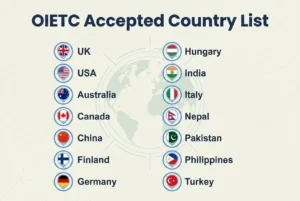An integrated master’s degree is a 4-year degree program combining undergraduate and postgraduate study in a single course. When you choose this degree, you are essentially committed to undergraduate and postgraduate degrees simultaneously. Besides, this course can be 4 to 5 years long, depending on whether you take a sandwich year with a work placement. However, this Master’s degree is equivalent to a bachelor’s degree. But the extra years will allow you to explore a subject deeply by learning everything in detail.
Though the degree duration is 4 to 5 years, if somehow you cannot achieve the necessary standard of performance to continue onto the fourth year, you will still get a 3-years bachelor’s degree program.
Why take an Integrated Master’s Degree?
If you aim to gain a specific qualification, then you should take an integrated master’s degree. Besides, if you intend to pursue an advanced technical or research-related career, then this degree is for you. This undergraduate Master’s degree is sometimes awarded to an undergraduate master’s degree as the degree begins at the undergraduate level and ends with a master’s degree.
How long is an Integrated Master’s Degree?
An integrated master’s degree is a four-year degree that combines a BA with MA. Generally, whether a bachelor’s degree takes three years to complete, this degree sometimes may take five years to complete when you take a year’s work placement as a part of your course.
Employer’s perspective on the Integrated Master’s Degree
An integrated master’s degree is very popular in the UK. Usually, this degree originated from the need for higher qualified working engineers in the UK. This type of course is mostly preferred when industry demands and a degree is more preferred than a first degree. Some sectors must need this qualification. Suppose you want to be a scientist. So you pretty much need to have a postgraduation qualification.
If you complete the graduation with an MChem degree, you will get a better outcome in jobs or other degrees. This degree will allow you to be a priority in the graduate job market. Employers are increasingly looking for graduates with this degree as they want experienced and skilled employees with advanced technical skills and expert understanding. For Jobs, a postgraduate qualification is most important, and that\’s why the importance of this degree has soared.
Funding for the Integrated Master’s Degree in the UK
A student can fund the integrated Master’s degree through the government’s student loans and grants. Besides, a student can fund this degree the same way he funds his undergraduate BEng/ BSC course. Usually, this kind of Master’s degree is government-funded.
Common subjects for the Integrated Master’s Degree in the UK?
An integrated master’s degree can be available in many subjects. This type of undergraduate Master’s degree is widespread in Scotland. However, most of the subjects a student will find to get this Master’s degree are STEM-related (Science, Technology, Engineering, and Mathematics). This subject tends to focus on applied knowledge and practical training with a specific link to a career path or vocation. A student will get industry-ready by taking this type of course.
Benefits of an Integrated Master’s Degree
Taking this undergraduate Master’s degree in the UK has many benefits. Let’s know the benefits of it.
- A student will be skilled enough and industry-ready.
- In the integrated Master’s degree, outcomes are significantly better than in the three years bachelor’s degree,
- If you want to take a career that requires special qualifications or professional training, then this Master’s degree can be the best choice for you.
- It will offer you the exact qualifications and skills required for your career.
- In a competitive graduate job market, this degree will help you to stand out from the crowd.
- An accredited integrated MEng degree will allow you to apply for the chartered status soon after graduation.
- The significant benefit of this Master’s degree is that it will help a student develop advanced laboratory, technical and professional skills for research or industry-related careers in the fourth year.
- This degree plays the role of an excellent springboard for the PhD studies.
Types of Integrated Master’s Degree in the UK
There is various Master’s degree available in the UK. The university specifically organizes some degrees, and others offer structured and skilled training in the professional field. Let’s know them one by one.
- MSci Degree
An MSci degree means an undergraduate master’s degree in a science subject. But this degree is not the same as MSc, a postgraduate course. In the MSci degree, a student will pass three years of bachelor’s degree, concluding with a year of Master’s study. The last year will be more skilled-based, where the focus will be on a particular research project. The qualification on MSci will focus more on vocational subjects that will build the practical skills for a specific career.
However, if you want to make preparations for a PhD, then a typical BSc and an MSc can be good options for you.
- The Scottish MA
Some ancient universities of Scotland provide the combined courses of BA with an MA in the same subject. After three years of a bachelor’s degree, a student can progress to postgraduate study. These degrees are a product of fully-recognized higher education degrees in the UK. These degrees are like completing the bachelor’s degree and then taking the MA degree in the same subject and university.
In the Scottish MA, the only difference is that, at the end of it, you will earn the MA degree. This is slightly different from the integrated Master’s degree in the UK, where you will be awarded two degrees at the same time. In the Scottish MA, your MA degree will supersede your BA.
- Master of Engineering (The MEng)
The MEng degrees are the most common 4 years undergraduate Master’s degree in the UK. This kind of engineering degree is a pre-condition for registration as a chartered account. Besides, it is a professional master’s degree in engineering. Though for the engineering students, there are other postgraduate Master’s available such as MSc( Eng). But MEng is the main qualification for students who want to start their career in engineering early.
Subjects that are not included in the Integrated Master’s Degree
Besides this modern integrated Master’s degree, other Master’s degrees are also available to study in the UK. Let’s here find the Master’s degrees that are different from the integrated ones.
- The Oxbridge MA
The Master’s degrees of Oxford and Cambridge are different from the other degrees. These universities automatically confer a master’s degree to undergraduate students after completing the graduation. The Oxbridge MA may seem similar to the Master’s degree because the postgraduation qualification is given automatically without enrolling on a new program. But in reality, they are not the same. An integrated master’s degree requires an additional year of study and includes a full master’s degree qualification.
- MPhil to PhD Upgrades
Many become confused between the integrated Master’s degree and the MPhil to PhD upgrades. When a doctoral student registers for an MPhil, he generally transfers to a PhD candidate status. But this doesn’t mean a student will get two qualifications. With registration, the PhD degree will supersede the MPhil.
- Long-cycle Masters
Before the European degrees, many countries offered extended degree programs that awarded a master’s level degree after four or five years of study. But this qualification is not the same as the integrated Master’s degree. This degree in the UK is a combination of two degrees at the same time, rather a long-cycle one for an extended period of time.
- Joint Masters
A joint or double master’s is another degree different from an integrated master’s. These degrees are offered by two or more partnered university that works in collaboration.
How the Integrated Master’s Degree graded?
As the undergraduate Master’s degree combines two degrees at the same time, the question often arises about how this Master’s degree is graded. They are graded as similar to the bachelor’s degree in the UK. It means instead of the traditional distinction, Merit and pass for Master’s, here it is graded as 1st, 2.1, 2.2 or a 3rd. However, each year weighs differently. In this four-year undergraduate Master’s degree, the third and fourth year is worth twice as much as the second.
Pros and Cons of integrated Master’s degree in the UK
It is a very popular degree in the UK. So, its benefits will overshadow its demerits. But yet, everything has some advantages and disadvantages. Let’s know about them properly.
Pros
- You will get two-qualification at the same time.
- The employers will give more priority.
- You will get government-funded student loans.
- The last or fourth year can be spent with friends and familiar staff.
- If you find the duration is too long to complete the course, you can switch to a bachelor’s degree and can get a graduate certificate.
Cons
- Subjects are limited.
- If you want to take a PhD, then this course may not always suggest. It would be better if you asked the faculty for suggestions.
- It will take more time to complete the degree and is potentially more stressful than a traditional bachelor’s degree.
- As you have to stay more in the UK, you have to spend more money on living costs.
So, if you want to study abroad from Bangladesh and want to know more about the integrated Master’s degree in the UK, AIMS Education, a student consultancy firm, can help you by providing the up to date knowledge about studying abroad.





